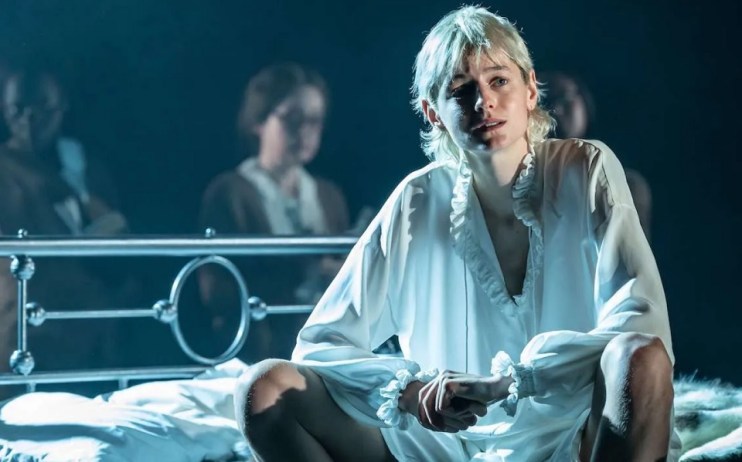Orlando, Garrick Theatre, review: Emma Corrin stuns in poetically crafted gender play

If you’re feeling exhausted or lost amid the conversations around transness and gender that pervade the news cycle, this gentle production of Orlando reminds how disarmingly simple it all is. “Isn’t it really just an ode to freedom and love?” director Michael Grandage asked about Virginia Woolf’s satirical novel. And Grandage proves that point across this poetic reimagining of her text, adapted for the stage by Neil Bartlett.
Written as an ode to Woolf’s lover Vita Sackville-West, Orlando is part Sackville-West, part buccaneering lothario galloping through literature’s past. Orlando begins in the Elizabethan Age, meeting Queen Elizabeth I, and ends up in 1928, nine years after women gained the vote in the UK.

The character Orlando is a projection of gender fluidity, traversing from male to female. To state the blindingly obvious, the story was astonishingly progressive for its day. Written in 1928, it still feels like a brilliant way into the conversation about how for many people, gender isn’t as simple as male and female.
Bartlett has kept many of Woolf’s most famous lines, making little vignettes between Orlando and their lovers as they go on a journey of self discovery. In one particularly effective scene, Orlando presents as a man and, in an intimate exchange, brings a girl’s hands to ‘his’ chest, revealing her feminine identity. The scene does well at conveying how attraction and physical sex shouldn’t need to have any bearing on one another.
Whether they’re embodying a hormonal teenage boy or a mature woman, Corrin brings confidence and a huge range to a staggering variety of characters
Emma Corrin, most famous for playing Diana in The Crown, finds humour and sentimentality in each iteration of Orlando, and crikey, Bartlett gives them plenty of iterations. Whether they’re embodying a hormonal teenage boy or a mature woman, Corrin brings confidence and a huge range to a staggering variety of characters, despite their gender identity or sexuality.
It’s all in their movement. Corrin, who is non binary, nails the high-shouldered male gait, stacked with bravado, and there is equal nuance given to the female characters they play. Perhaps helped by aggressive marketing material that’s been all over Instagram and the Underground for months, Corrin evokes real star power.
They’re clearly comfortable with Michael Grandage, the legendary theatre director who recently led Corrin opposite Harry Styles in another period queer piece, the feature film My Policeman. Grandage is more at home in the theatre, and his vivid Orlando fills every inch of the Garrick Theatre’s stage. There is wonderful use of choreographed dance in particular that brightens what’s already a pacey 90-minute show.
But so much is in the wordplay, and Bartlett’s interpretation has extracted the satire of Woolf’s text well. Most unusual is his idea to stage nine Virginia Woolfs who pop up to advise Orlando. They are hit-and-miss in their effectiveness, sometimes not conveying much despite the clever idea, but the writing is always playing up the meta feel which is a lot of fun.
Bartlett’s script doesn’t delve particularly deeply into the nuances of what it means to be gender fluid. Instead there’s a lighter touch. Orlando poses questions such as “who am I?”, repeated one too many times and feeling a touch reductive. But the nuance is there in the characterisations, and through incredibly nimble displays of the different identities that constitute Orlando, Corrin explodes the rigid idea of the gender binary and has a lot of fun too.
Orlando plays at the Garrick Theatre until 25 February 2023, tickets are online
Read more from City A.M. Culture
